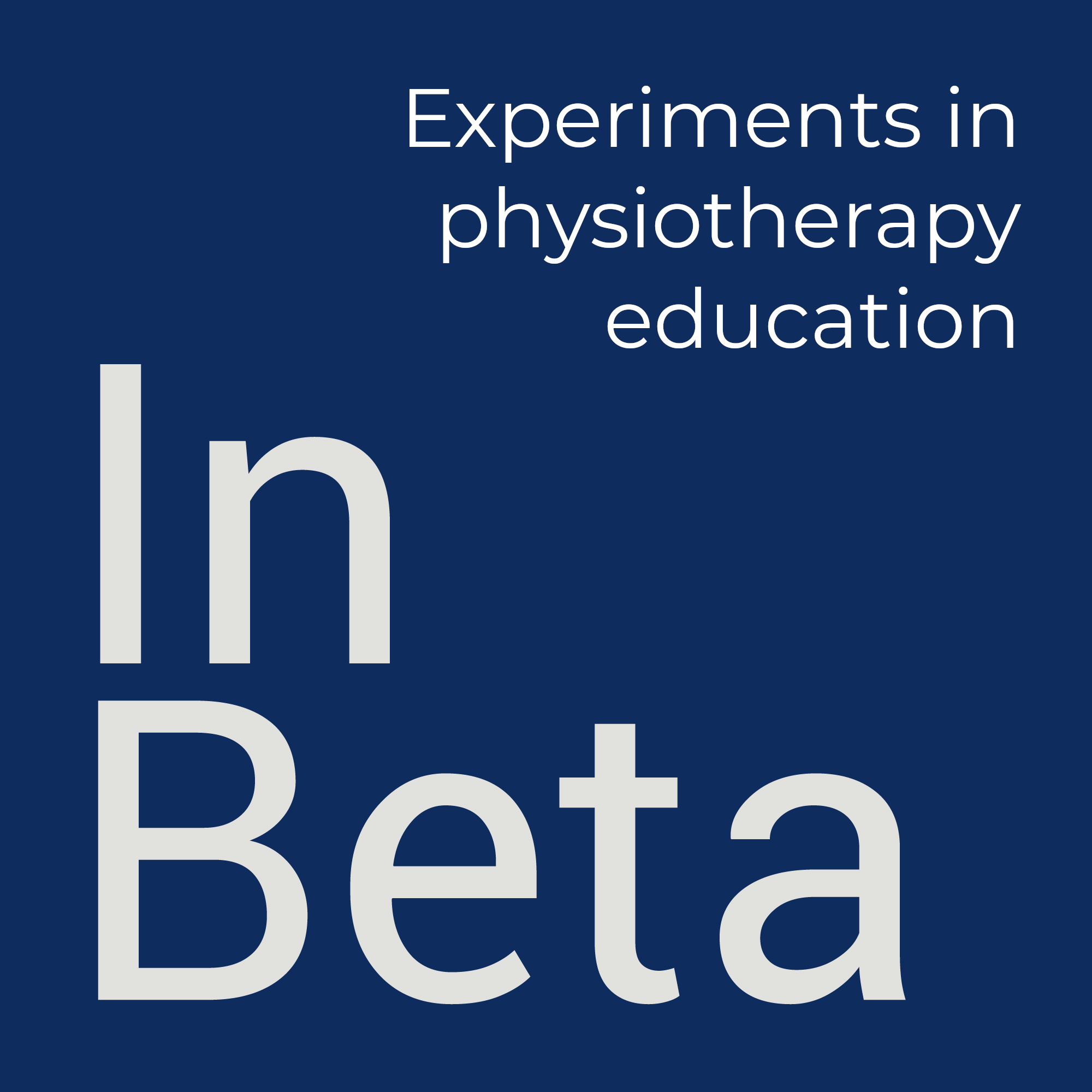
In this episode, Ben talks to Carmen Caiero about the development of a narrative reasoning course as part of the physiotherapy programme at Instituto Politécnico de Setúbal in Portugal. Anestis Divanoglou also joins the conversation to share his experiences at the University of Iceland.
Narrative reasoning has been defined as the capability of a therapist to apprehend and understand patients` “stories”, illness experiences, meaning perspectives, contexts, beliefs and cultures (Edwards, Jones, Carr, and Jensen, 2004). An ability to recognize, interpret and be moved to action by an individual’s story of illness is a key attribute in person-centred practice. However, students and novice professionals often find it difficult to engage in narrative forms of reasoning and collaborative models of practice, focusing instead predominantly on biomedical aspects (Cruz, Moore, and Cross, 2012). Carmen discusses the theoretical background and practical implementation of a fascinating course that makes use of arts, literature and reflective writing to help health students develop skills to observe, absorb, interpret and respond empathetically to patients` stories.
You can still view the planning document, which includes more information and links to additional resources on the topic. And remember that you can join the community by subscribing to the podcast to get announcements about future episodes. Subscribe to the podcast on iTunes, Spotify, or any of the major podcast clients on Android. Featured image by Andre Mouton on Unsplash.
Resources
Links to the research carried out in the scope of this project:
- Caeiro C, Cruz E, Pereira C. 2014 Arts, literature and reflective writing as educational strategies to promote narrative reasoning capabilities among physiotherapy students. Physiotherapy Theory and Practice. 30(8): 572-580.
- Cruz E, Caeiro C, Pereira C. 2014 A narrative reasoning course to promote patient-centred practice in a physiotherapy undergraduate programme: a qualitative study of final year students. Physiotherapy Theory and Practice. 30(4): 254-260.
Further reading:
- Havi Carel’s work
- Charon R 2000 Medicine, the novel, and the passage of time. Annals of Internal Medicine 132(1):63–8.
- Charon R 2004 Narrative and Medicine. New England Journal of Medicine 350(9):862–864.
- Charon R 2006 Narrative medicine: honoring the stories of illness. Oxford & New York: Oxford Univ. Press.
- Cruz EB, Moore A, Cross V 2012 A qualitative study of physiotherapy final year undergraduate students’ perceptions of clinical reasoning. Manual Therapy 17(6):549–53.
- Edwards I, Jones M, Carr J, Jensen G. 2004. Clinical Reasoning Strategies in Physical Therapy. Physical Therapy 84(4):312–330.
- Greenhalgh T, Hurwitz B 1998 Narrative based medicine. 1st ed. London: BMJ Books.
- Hall A, Ferreira P, Maher C, Latimer J, Ferreira M 2010 The influence of the therapist-patient relationship on treatment outcome in physical rehabilitation: a systematic review. Physical therapy 90: 1099–1110.
- Hunter K, Charon R, Coulehan J 1995 The study of literature in medical education. Academic Medicine 70(9):787–794.
- Kumagai AK, Murphy A, Ross P 2009 Diabetes stories: use of patient narratives of diabetes to teach patient-centered care. Advances in health sciences education: theory and practice 14: 315–26.
- Meakin R, Kirklin D 2000 Humanities special studies modules: making better doctors or just happier ones? Journal of Medical Ethics: Medical Humanities 26:49–50.
- Resnik L, Jensen G 2003 Using Clinical Outcomes to Explore the Theory of Expert Practice in Physical Therapy. Physical Therapy 83(12):1090–1106.

Carmen Caeiro works as an assistant professor at the Health School of the Polytechnic Institute of Setúbal. She is interested in exploring how individuals experience and make sense of their disorders as well as the related healthcare interventions and outcomes. She has also carried out research in the scope of physiotherapy education. In particular, the contribution of some educational approaches to the development of clinical reasoning and patient-centred care.

Anestis Divanoglou is an Assistant Professor in the Department of Physiotherapy, Faculty of Medicine, at the University of Iceland.

